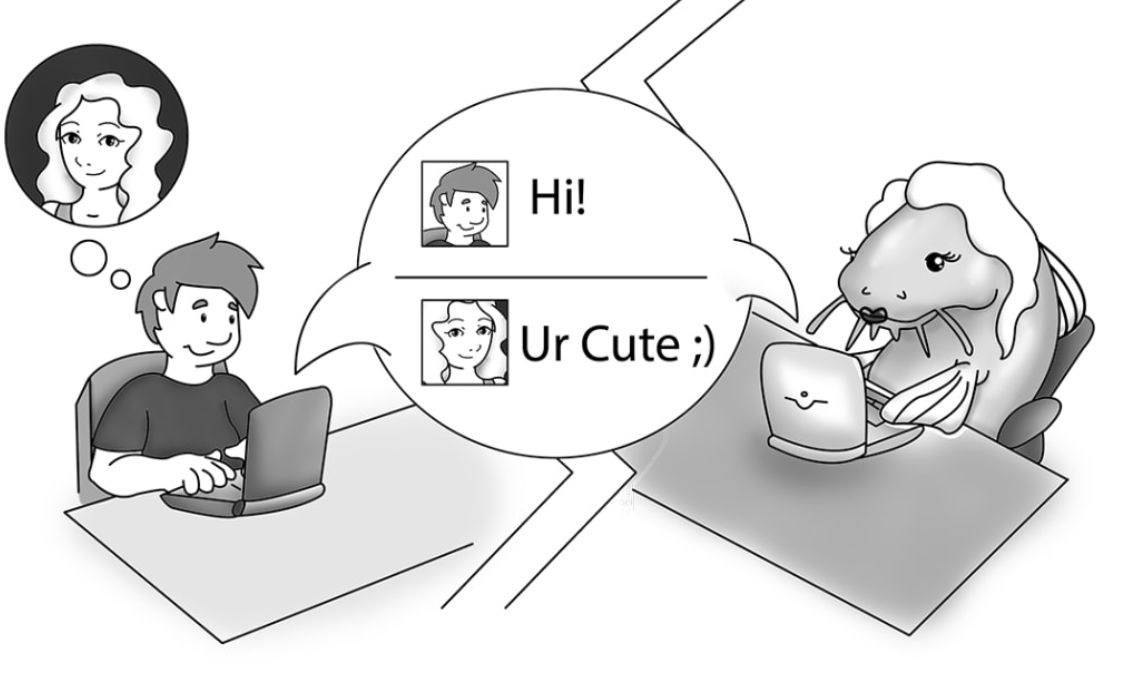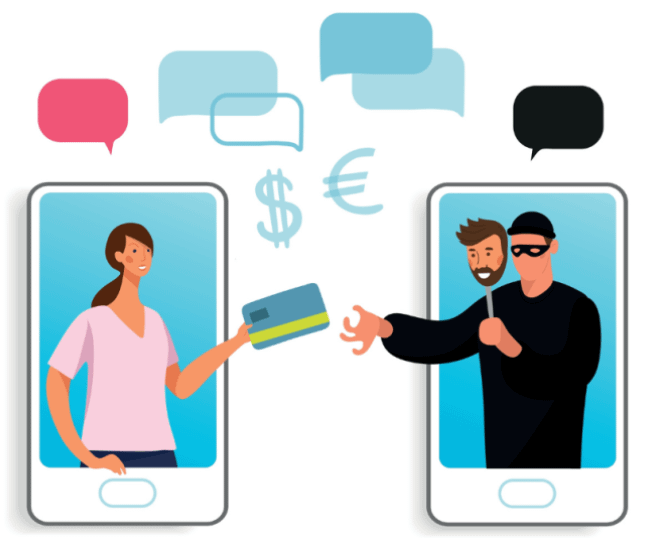Danger Lurking on Social Media: Catfishing on LinkedIn and How to Stay Secure
In an era predominantly driven by digital interactions, social media platforms have become essential for many aspects of our professional lives. LinkedIn, a popular network for professionals, offers tremendous opportunities for networking, job searching, and career advancement. Unfortunately, with the rise of fraudulent activities online, there is an increasing risk of falling victim to catfishing on platforms like LinkedIn. This article explores the dangers of catfishing on LinkedIn and provides practical measures, such as applying cyber essentials controls and training, to help you stay secure.
Understanding Catfishing: Catfishing refers to the act of creating a fictitious online persona to deceive others. In the context of LinkedIn, catfishers often create fake profiles with the intention of scamming or manipulating unsuspecting individuals for personal gain. These individuals may hide behind attractive profile pictures, fake education or work histories, and cleverly crafted narratives to lure their targets into a false sense of security.
The Risks of Catfishing on LinkedIn:
- Identity theft: By gaining access to your personal and professional information, catfishers can use it to commit identity fraud or engage in other malicious activities.
- Financial scams: Catfishers may trick victims into revealing sensitive financial information or engaging in fraudulent financial transactions.
- Reputation damage: Interacting with a catfisher can lead to harm to your personal and professional reputation, as well as affecting relationships with genuine connections.
- Emotional manipulation: Catfishers often establish emotional connections to exploit their victims psychologically, leaving victims vulnerable.
How can I spot a catfish?
Watch out for these behaviours to avoid relationship scams and catfish.
They want to know your personal details
Someone asking for personal information, like your full name, address, date of birth or bank details.
Conversations that get personal very quickly

They're telling you they love you, but you've only been talking for a couple of days or weeks. Someone who quickly suggests talking by email, text or phone rather than via the platform where you met them.
When an unsolicited message gets personal very quickly, it is often a red flag and could be indicative of various intentions or behaviours.
It's important to exercise caution when someone you don't know well begins to get personal quickly. Take the following actions to protect yourselfIf something feels off or uncomfortable, trust your instincts and consider ending the conversation or blocking the individual. Be cautious about revealing personal details or sensitive information to individuals you have just met online. Protect your privacy until you've established trust.
When engaging with new acquaintances online, verify their identities by conducting independent research or confirming their background through reliable sources. If someone is making you uncomfortable or engages in suspicious activity, report their behaviour to the relevant platform or authorities, if necessary.
Make it clear what personal subjects or information you are not comfortable discussing and establish and enforce your boundaries when communicating online. Remember, it is essential to prioritise your own safety and privacy in all online interactions.
You can't find any trace of them online
You've searched their name on the internet but they don't seem to exist. Or they do, but the photos don't match the photos on their dating profile. Someone who only tells you vague details about themselves, and nothing that can be fact-checked.
When it comes to tracing someone online, there are a few platforms and techniques that can assist in finding information about an individual. However, it's important to note that privacy laws and ethical considerations vary by country, so always ensure you are acting within the legal boundaries and respecting others' privacy.
Remember to approach online searches responsibly and consider the impact of sharing or using personal information. Always prioritise privacy and respect others' boundaries. Additionally, relying solely on online platforms may not guarantee accurate or complete information, so proceed with caution and verify any findings through multiple sources when possible.They ask you for money

Emotional stories in which someone asks for money, for example claiming that they’ve fallen on hard times or that their relative is ill. Someone asking for money in order to come and visit you because they live far away.
If a potential cat fisher asks you to send them money, it is crucial to take immediate steps to protect yourself from financial loss and potential exploitation. Here's what you should do:
Cease all communication: End all contact with the individual asking for money. Do not engage in further discussions or negotiations.
Do not send money: Under no circumstances should you send money to someone you have only met online and suspect to be a cat fisher. Avoid giving in to any manipulation, emotional pleas, or promises they may make.
Report the incident: Report the potential catfisher to the platform or social media platform where the initial contact occurred. Most social media platforms have mechanisms in place to report suspicious behaviour, including catfishing and financial scams.
Inform your bank or financial institution: If you have already shared any banking or credit card details, notify your bank immediately. They can guide you through the necessary steps to secure your accounts and prevent unauthorized transactions.
Preserve evidence: Keep records of all communications, including messages, emails, or any other interactions you had with the potential catfisher. These records may be useful if you decide to involve law enforcement authorities later on.
Warn others: If possible, inform friends, family, or colleagues about your experience to raise awareness and prevent others from falling victim to the same catfisher.
Educate yourself: Learn about the warning signs of catfishing and online scams to better protect yourself in the future. Familiarize yourself with privacy settings and security features on social media platforms to ensure your online safety.
Remember, it is essential to stay vigilant and cautious while interacting with people online. It's always better to err on the side of caution and protect yourself from potential scams. Trust your instincts, and if something seems too good to be true or suspicious, it probably is.
They ask you to keep your relationship secret
Someone asking you to keep the relationship secret or trying to isolate you from your friends or family.
Cat fishers have various motivations for wanting to keep their relationships secret. Here are a few possible reasons:
Deception and manipulation: Catfishers often engage in deceptive behaviours and use fake identities to manipulate their victims emotionally or financially. Keeping the relationship secret aids in their efforts to control the narrative and maintain their false persona without being exposed.Avoiding exposure and consequences: Revealing their true identity or intentions can lead to serious consequences, such as legal repercussions or damage to their personal and professional reputation. By keeping the relationship secret, they minimize the risk of being discovered and held accountable for their deceitful actions.
Maintaining multiple relationships: Catfishers may have multiple victims or be involved in simultaneous deceitful relationships. By keeping these relationships secret from each other, they can continue their manipulation without jeopardizing their control over any one individual.
Protecting their anonymity: Anonymity is a key asset for cat fishers. They often hide behind fake profiles to avoid being identified and tracked down. By keeping the relationship secret, they maintain their anonymity and make it difficult for their victims to uncover their true identity
Creating dependence and emotional attachment: Catfishers seek to establish emotional connections with their victims. By keeping the relationship secret, they create an environment of secrecy and exclusivity that fosters a sense of trust and dependence on their fabricated persona. Victims may be less likely to question the authenticity of the relationship if it remains hidden from others.
It's important to note that these motivations are driven by the manipulative and deceitful nature of cat fishers. Recognising the signs of secrecy and keeping relationships exclusively online can help individuals avoid falling into the trap of catfishing scams.
They avoid face-to-face contact
Even if they live in another country, there are lots of ways to meet them online, such as Skype and Facetime. If they're avoiding showing you their face, this could be a sign that they're not who they say they are.
Their stories don't add up
Watch out for inconsistencies in people's stories, and if something doesn't make sense, ask about it.
Mitigating Catfishing Risk's on LinkedIn:
- Conduct thorough profile checks: Before accepting connection requests or engaging in conversations, scrutinise profiles for inconsistencies, suspicious details, or generic stock photos.
- Be cautious with personal information sharing: Avoid sharing sensitive and personal information on your LinkedIn profile or in conversations with unfamiliar contacts.
- Verify connection's: Seek mutual connections or reputable references before engaging with new LinkedIn contacts.
- Conduct independent verification: Cross-reference information provided by potential connections using external sources to ensure its accuracy.
- Cyber Essentials Certification: Cyber Essentials certification is a robust security framework designed to safeguard against common cyber threats. By implementing and maintaining this certification, both individuals and businesses can significantly enhance their security posture on platforms like LinkedIn.
The Importance of Cyber Essentials
Whilst certifications of any kind will not necessarily protect you from falling victim to a catfisher, or any cyber criminal, there are advantages to having effective technical and policy controls in place that will support and protect businesses.
Strengthened security measures: Cyber Essentials ensures that necessary security measures, such as firewalls, secure configurations, access management controls, and regular system updates, are in place to protect against cyber threats.
Increased awareness: Achieving the certification requires individuals and businesses to educate themselves about cybersecurity best practices, empowering them to recognize and respond to potential threats effectively.Improved reputation: By displaying the Cyber Essentials certification, you showcase your commitment to cybersecurity, establishing trust among connections and potential employers
Competitive advantage: Cyber Essentials certification sets you apart from others who may not have implemented the same level of security measures, increasing your chances of remaining secure online.
As the popularity of LinkedIn continues to rise, the risks of falling victim to catfishing have become more prevalent. By understanding the dangers of catfishing and implementing the suggested measures, such as conducting thorough profile checks and obtaining Cyber Essentials certification, you can significantly reduce the likelihood of being catfished.
Stay vigilant, protect your personal and professional information, and ensure your online interactions align with best security practices to stay safe in the digital world.
Get help, support and advice from me and cyber essentials from ADAS-LTD here!

